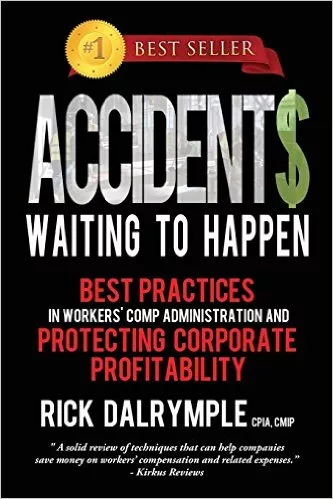Supply Chain Satisfaction Opportunities in an Improving Industry
Over the years, Roofing Contractor has supported me in conducting and publishing the results of various surveys about the industry. These have included studies about how property owners and specifiers view contractors, and how contractors view the value chain.

 Over the years, Roofing Contractor has supported me in conducting and publishing the results of various surveys about the industry. These have included studies about how property owners and specifiers view contractors, and how contractors view the value chain. All of these surveys over the past seven years have had one trend in common: the industry continues to improve. That’s the good news. The better news is that since contractors are not extraordinarily satisfied, there is still plenty of opportunity for members of the value chain to improve market share by focusing even more on satisfying contractor needs. The humbling news is that even with continued improvements, our industry does not perform as well as other industries I’ve witnessed.
Over the years, Roofing Contractor has supported me in conducting and publishing the results of various surveys about the industry. These have included studies about how property owners and specifiers view contractors, and how contractors view the value chain. All of these surveys over the past seven years have had one trend in common: the industry continues to improve. That’s the good news. The better news is that since contractors are not extraordinarily satisfied, there is still plenty of opportunity for members of the value chain to improve market share by focusing even more on satisfying contractor needs. The humbling news is that even with continued improvements, our industry does not perform as well as other industries I’ve witnessed.
Specifically, we conducted satisfaction surveys with contractors about their perceptions of service in the roofing value chain in both 2001 and 2003 and published those results. The primary conclusion at the time was that our industry had plenty of room for improvement. Contractors in general were somewhat satisfied, but not overjoyed with the various services they were receiving.
With even more industry consolidation, including manufacturers, distributors, retailers and contractors, Roofing Contractor wanted to see if this structural evolution has positively or negatively affected perception of service to contractors. With the help of Clear Seas Research, a leading strategic data gathering and analysis company servicing the building products industry, surveys were obtained from just under 400 contractors in early 2008, representing a national sample. Clear Seas provided much improved capabilities to ensure accurate data and insight versus the survey techniques of the previous two studies.
 Satisfaction Is Improving, But There’s Still Room for Improvement
Satisfaction Is Improving, But There’s Still Room for Improvement
Contractors used a satisfaction scale of 1 to 5, with 1 being very unsatisfied and 5 being very satisfied. With 12 key areas of satisfaction, average scores were all 4 or below (see Figure 1). My personal experience in satisfaction studies with several other industries is that the majority of satisfaction scores are typically between 4 and 4.5.
Overall satisfaction with the value chain overall is highest for accurate invoicing (4.0), followed by being easy to do business with (3.8) and product arriving in excellent condition (3.8). The weakest scores were for sources for ideas to help build business (2.8) and incentives (3.0).
Independent Distributors Are Servicing Best
The independent distribution channel outperformed all other service providers overall, and in almost every satisfaction factor (see Figures 1 and 2). This compared to results representing national roofing distributors, lumberyards, “big box” retailers and purchases directly from manufacturers. Conversely, big box retailers scored lowest in every focus area, with over half of respondents being “unsatisfied” based on attribute scores below a 3. Based on direct purchasing, results from manufactures have improved slightly over the years. Manufacturers received their best satisfaction scores for accurate invoicing (4.2), answering technical questions (4.1), quality of product (4.1) and product arriving in excellent condition (4.0). Lower scores were for providing ideas (3.3), incentives (3.3) and credit terms (3.4). National roofing distributors performed best on ease of doing business (4.1) and quality of product available (4.1), with their lowest scores on incentives (3.4) and as a resource for ideas (3.2). Similar to the case with big box retailers, satisfaction with lumberyards was relatively low, with only 33 percent of satisfaction factors rating above a 3.5. Ranking between value chain participants has changed very little over the years (see Figure 2).
 Improving Communication Should Increase Satisfaction With Service
Improving Communication Should Increase Satisfaction With Service
It seems very interesting that the industry satisfaction scores for appreciation of business (3.5), responding quickly to technical questions (3.4) and answering technical questions effectively (3.4) are all relatively low. Further, contractors are not satisfied with the value chain as a source of business ideas (2.8). My sense is that these factors all relate to less than optimal personal attitudes and communication. If the outside and inside sales teams are not performing well on these attributes, aren’t they “order takers” versus adding significant value? Isn’t that a wakeup call to all of us that serve the contracting community?
Contractors Are Relatively Loyal To Their Primary Supplier
On average, contractors deal with primarily four distributors (see Figure 3). Contractors continue to focus the majority of their purchases (64%) with their primary distributor, direct purchases from manufacturers represents 15 percent and they typically spread 21 percent among three distributors. These loyalty results are essentially the same as the previous surveys in 2003 and 2001 (see Figure 4).
 Most Roofing Purchased Through Distribution
Most Roofing Purchased Through Distribution
The majority of contractors purchase their roofing products through distribution rather than directly from a manufacturer (see Figure 5). This is especially true for steep-slope products, with essentially all shingles (97%), underlayment (95%) and ventilation (93%) being sold through distribution. Essentially all asphalt roll low-slope membranes (96%) are sold through distribution. Manufacturer-direct purchases are highest for low-slope needs, including installation equipment (24%), single-ply membranes (13%), fasteners (11%) and insulation (9%).
Product Brands Are Critical in Choosing Primary Distributor
On a scale of 10 being unimportant and 1 being most important in their reasons for choosing their primary distributor, availability of their preferred brands was the most important (3.0). Price (4.0) and prompt delivery (4.7) were the next most important factors (see Figure 6). Interestingly, incentives were the least likely to influence their choice of a contractor’s primary distributor (7.9).
 Ordering Will Remain Primarily by Phone
Ordering Will Remain Primarily by Phone
Contractor purchases continue to be communicated primarily by phone, with 76 percent of respondents indicating they will likely order by phone in the future (see Figure 7). Ordering in person will continue to be important (50%). The biggest increase will likely be in e-mail ordering (from 22% now to 39% in the future); the biggest declines will be in fax orders (shifting from 54% to 46%).
Industry Consolidation Is Positive Overall
Contractors continue to view industry consolidation of manufactures and distributors as somewhat positive, but are split on their perception that consolidation of contractors has been good for the industry. Primary concerns with consolidation relate to squeezing margins; primary advantages relate primarily to simplicity of doing business (see Figure 8).
Some Closing Thoughts
It is encouraging that our industry continues to show improvement in satisfying contractor needs. It is disheartening that the pace of improvement is relatively slow and that the results are less than extraordinary.
Roofing is a difficult industry. In general, contractors work on very slim margins but carry a great deal of liability. The public underestimates the difficulties in delivering exceptional quality.
 Specifically, the public does not generally understand the mistakes they can make with inferior contractors who may not evaluate the roof condition properly, may not share the best options available for those specific needs, may not be qualified to properly install the roof system selected, and may not be using materials from manufacturers with appropriate quality assurance processes and who fairly support their warranties. As in any industry, the less perceived risk in the purchase decision, the more likely the buyer will act as if they are purchasing a commodity. That means the less insight into the differences between quality contractors, distributors and manufacturers, the more inadequate the margins are for the entire industry.
Specifically, the public does not generally understand the mistakes they can make with inferior contractors who may not evaluate the roof condition properly, may not share the best options available for those specific needs, may not be qualified to properly install the roof system selected, and may not be using materials from manufacturers with appropriate quality assurance processes and who fairly support their warranties. As in any industry, the less perceived risk in the purchase decision, the more likely the buyer will act as if they are purchasing a commodity. That means the less insight into the differences between quality contractors, distributors and manufacturers, the more inadequate the margins are for the entire industry.
Simply, margins are directly related to the degree of risk perceived in a purchase decision, and the insight into the differences between potential providers in reducing or eliminating that risk. Regardless of the industry, it is that gap between perceived risk and the ability to reduce or eliminate the risk that is the core essence of greater value.
Therefore, the key to success in any industry comes down to a few core fundamentals that help lead to an understanding of value. First is trust. People don’t listen as closely to what you have to say unless they trust you first. The importance of trust is required at the industry, company and the employee levels. Second is education. People generally don’t change their decisions without insight, which is a direct result of education. Education should go beyond understanding what a company or individual can do for the customer; it focuses on questions like “Why should I care?” and “What is the result of what you’re going to do to help me?”
The roofing industry will never achieve the financial returns it deserves until we outwardly improve trust and education with property owners about the risks of an inferior decision and our ability to provide appropriate solutions. And, that perception is not likely to improve much until we enhance trust and education within our industry.



Overall contractor satisfaction
Specifically, we conducted satisfaction surveys with contractors about their perceptions of service in the roofing value chain in both 2001 and 2003 and published those results. The primary conclusion at the time was that our industry had plenty of room for improvement. Contractors in general were somewhat satisfied, but not overjoyed with the various services they were receiving.
With even more industry consolidation, including manufacturers, distributors, retailers and contractors, Roofing Contractor wanted to see if this structural evolution has positively or negatively affected perception of service to contractors. With the help of Clear Seas Research, a leading strategic data gathering and analysis company servicing the building products industry, surveys were obtained from just under 400 contractors in early 2008, representing a national sample. Clear Seas provided much improved capabilities to ensure accurate data and insight versus the survey techniques of the previous two studies.

Number of suppliers and change in number of suppliers over the past 12 months
Contractors used a satisfaction scale of 1 to 5, with 1 being very unsatisfied and 5 being very satisfied. With 12 key areas of satisfaction, average scores were all 4 or below (see Figure 1). My personal experience in satisfaction studies with several other industries is that the majority of satisfaction scores are typically between 4 and 4.5.
Overall satisfaction with the value chain overall is highest for accurate invoicing (4.0), followed by being easy to do business with (3.8) and product arriving in excellent condition (3.8). The weakest scores were for sources for ideas to help build business (2.8) and incentives (3.0).
Independent Distributors Are Servicing Best
The independent distribution channel outperformed all other service providers overall, and in almost every satisfaction factor (see Figures 1 and 2). This compared to results representing national roofing distributors, lumberyards, “big box” retailers and purchases directly from manufacturers. Conversely, big box retailers scored lowest in every focus area, with over half of respondents being “unsatisfied” based on attribute scores below a 3. Based on direct purchasing, results from manufactures have improved slightly over the years. Manufacturers received their best satisfaction scores for accurate invoicing (4.2), answering technical questions (4.1), quality of product (4.1) and product arriving in excellent condition (4.0). Lower scores were for providing ideas (3.3), incentives (3.3) and credit terms (3.4). National roofing distributors performed best on ease of doing business (4.1) and quality of product available (4.1), with their lowest scores on incentives (3.4) and as a resource for ideas (3.2). Similar to the case with big box retailers, satisfaction with lumberyards was relatively low, with only 33 percent of satisfaction factors rating above a 3.5. Ranking between value chain participants has changed very little over the years (see Figure 2).

How contactors spread their business
It seems very interesting that the industry satisfaction scores for appreciation of business (3.5), responding quickly to technical questions (3.4) and answering technical questions effectively (3.4) are all relatively low. Further, contractors are not satisfied with the value chain as a source of business ideas (2.8). My sense is that these factors all relate to less than optimal personal attitudes and communication. If the outside and inside sales teams are not performing well on these attributes, aren’t they “order takers” versus adding significant value? Isn’t that a wakeup call to all of us that serve the contracting community?
Contractors Are Relatively Loyal To Their Primary Supplier
On average, contractors deal with primarily four distributors (see Figure 3). Contractors continue to focus the majority of their purchases (64%) with their primary distributor, direct purchases from manufacturers represents 15 percent and they typically spread 21 percent among three distributors. These loyalty results are essentially the same as the previous surveys in 2003 and 2001 (see Figure 4).

Ways of purchasing materials
The majority of contractors purchase their roofing products through distribution rather than directly from a manufacturer (see Figure 5). This is especially true for steep-slope products, with essentially all shingles (97%), underlayment (95%) and ventilation (93%) being sold through distribution. Essentially all asphalt roll low-slope membranes (96%) are sold through distribution. Manufacturer-direct purchases are highest for low-slope needs, including installation equipment (24%), single-ply membranes (13%), fasteners (11%) and insulation (9%).
Product Brands Are Critical in Choosing Primary Distributor
On a scale of 10 being unimportant and 1 being most important in their reasons for choosing their primary distributor, availability of their preferred brands was the most important (3.0). Price (4.0) and prompt delivery (4.7) were the next most important factors (see Figure 6). Interestingly, incentives were the least likely to influence their choice of a contractor’s primary distributor (7.9).

Reasons for choosing primary distributor
Contractor purchases continue to be communicated primarily by phone, with 76 percent of respondents indicating they will likely order by phone in the future (see Figure 7). Ordering in person will continue to be important (50%). The biggest increase will likely be in e-mail ordering (from 22% now to 39% in the future); the biggest declines will be in fax orders (shifting from 54% to 46%).
Industry Consolidation Is Positive Overall
Contractors continue to view industry consolidation of manufactures and distributors as somewhat positive, but are split on their perception that consolidation of contractors has been good for the industry. Primary concerns with consolidation relate to squeezing margins; primary advantages relate primarily to simplicity of doing business (see Figure 8).
Some Closing Thoughts
It is encouraging that our industry continues to show improvement in satisfying contractor needs. It is disheartening that the pace of improvement is relatively slow and that the results are less than extraordinary.
Roofing is a difficult industry. In general, contractors work on very slim margins but carry a great deal of liability. The public underestimates the difficulties in delivering exceptional quality.

Methods of placing orders and expectations for the future
Simply, margins are directly related to the degree of risk perceived in a purchase decision, and the insight into the differences between potential providers in reducing or eliminating that risk. Regardless of the industry, it is that gap between perceived risk and the ability to reduce or eliminate the risk that is the core essence of greater value.
Therefore, the key to success in any industry comes down to a few core fundamentals that help lead to an understanding of value. First is trust. People don’t listen as closely to what you have to say unless they trust you first. The importance of trust is required at the industry, company and the employee levels. Second is education. People generally don’t change their decisions without insight, which is a direct result of education. Education should go beyond understanding what a company or individual can do for the customer; it focuses on questions like “Why should I care?” and “What is the result of what you’re going to do to help me?”
The roofing industry will never achieve the financial returns it deserves until we outwardly improve trust and education with property owners about the risks of an inferior decision and our ability to provide appropriate solutions. And, that perception is not likely to improve much until we enhance trust and education within our industry.

Perceived effect of consolidation on the industry
The relatively weak satisfaction scores contractors give the value chain reflect a relatively weak level of trust. The relatively weak satisfaction scores related to helping with ideas, technical questions and appreciation for business provided suggest an industry that can improve education. Trust and education is implemented through one core concept: excellent communications.
If this industry desires improved margins, we must enhance trust and education throughout the value chain and with property owners and specifiers. The roofing industry value chain has a responsibility to lead. That leadership process is most important within our value chain with evidence of very satisfied contractors in order to spur improvements with property owners and specifiers.
This article is a snapshot of a new comprehensive study examining the supply chain distribution of the roofing market. The conclusions are based on the opinions and preferences of roofing contractors who agreed to participate in the survey, which was conducted between March 18 and April 18, 2008. The survey was conducted and findings were compiled by Clear Seas Research, a division of BNP Media. This in-depth research study provides up-to-date information on roofing contractors’ awareness and preference levels of roofing distributors and identifies commonly used purchasing habits. The comprehensive report is available from Clear Seas Research. For information about ordering or to find out more about Clear Seas Research, contact Sarah Turner at turners@clearseasresearch.
If this industry desires improved margins, we must enhance trust and education throughout the value chain and with property owners and specifiers. The roofing industry value chain has a responsibility to lead. That leadership process is most important within our value chain with evidence of very satisfied contractors in order to spur improvements with property owners and specifiers.
This article is a snapshot of a new comprehensive study examining the supply chain distribution of the roofing market. The conclusions are based on the opinions and preferences of roofing contractors who agreed to participate in the survey, which was conducted between March 18 and April 18, 2008. The survey was conducted and findings were compiled by Clear Seas Research, a division of BNP Media. This in-depth research study provides up-to-date information on roofing contractors’ awareness and preference levels of roofing distributors and identifies commonly used purchasing habits. The comprehensive report is available from Clear Seas Research. For information about ordering or to find out more about Clear Seas Research, contact Sarah Turner at turners@clearseasresearch.
Looking for a reprint of this article?
From high-res PDFs to custom plaques, order your copy today!








